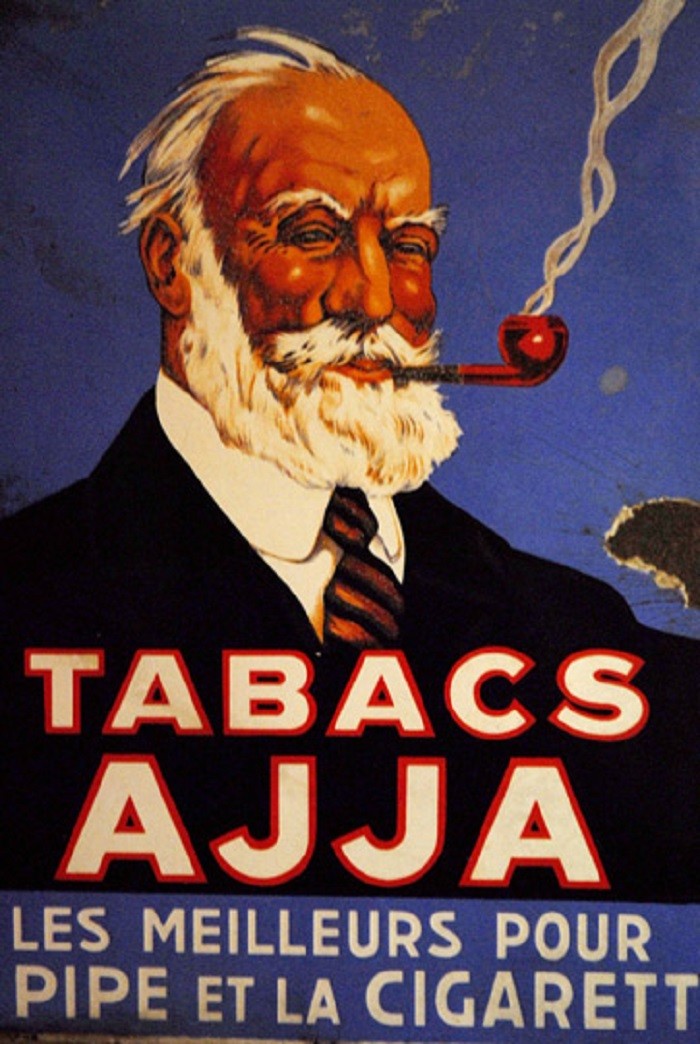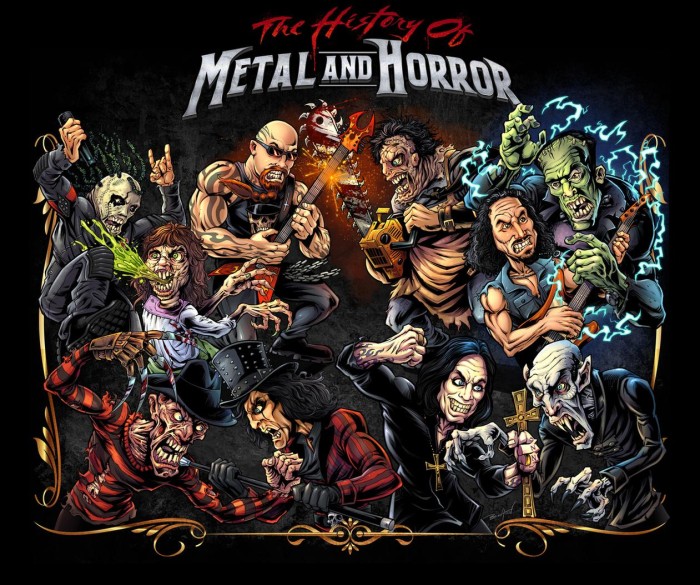
The casual observer seeing how metalheads and SJWs, who descend more from crustfund punk and emo than metal, might ascertain that the two groups are radically different. This observer might even note how many of the “tryhard” types are in fact thinly-disguised SJWs. But at first appearance, the reason for this separation will be misunderstood.
An average person will see metal as wild and lawless, like a combination of the Wild West and medieval Europe, where SJWs are more like modern Europe: very morally righteous, sensitive and inclusive. This difference separates metalheads from SJWs, but it is not the primal reason why the two are different. It serves as a guidepost to that end however.
Black Sabbath launched themselves during the height of the hippie period. At that time, the popular narrative that people told themselves was that history from the Napoleonic Wars to 1945 was just one big mistake, and the way to defeat it was love, through people power and pacifism and universal acceptance. Apparently none of these people studied history or they would have known how frequently this trope comes up, and how it usually ends! Black Sabbath saw through what these hippies were saying an argued it was more of the same, and that humanity was in denial of reality and has been choosing various “human realities” instead of actual reality, to its doom.
In human experience, our most common error is self-delusion. When that is discovered, we usually choose another self-delusion. The classic example is the alcoholic who runs into the arms of a tent revivalist, and becomes addicted to another set of false promises. Another is the woman who flees her marriage only to find out years later that the new boyfriend she chose is a lot like the last husband. Voters run from one party to another, as they go from one cell phone company to another, thinking that “the other guy” might have answers. And he never does. The reason why is that he is also selling an illusion, because only illusions sell.
This leads us to why metal is different from rock and why it is the natural enemy of SJWs: metal is against illusions. SJWs want you to pick one illusion over others, but metal points out that whatever is popular is illusion and is wrong. We need some other way of looking at the world than what “most people” want to believe is true about it because it makes them look good, feel important and think they are unique. Humanity is basically a large organic machine for producing lies, and every group wants us to substitute their lie for the dominant lie, but all of these lies have their root in the same idea: that what we feel, judge and emote is more important than reality itself.
Look at politics. It is a wasteland. As notorious shock realist author Tom Wolfe once wrote in a letter to a friend:
The Republican Party as now constituted is obviously too stupid to survive…. What is to be done? Of course, that was Lenin’s line and the only lucid one he ever wrote. The answer is nothing. America’s position is unassailable. We are the imperial Rome of the 3rd Millennium. Our government is a CSX train on a track. People on one side (the left) yell at it, and people on the other side (the right) yell at it, but the train’s only going to go down the track. Thank God for that. That’s why I find American politics too boring to write about. Nixon is forced from office. Does a military junta rise up? Do the tanks roll? Give me a break.
Let us separate “rock music thinking” from “real world thinking.” Not in the way that our great-grandparents did, where rock was bad and work was good, but in the manner of people who recognize that popular music is entertainment which pretends to be profound, but is the opposite of art which explores profound subjects through realism. Entertainment wants you to think it has all the answers, but ultimately it is a social phenomenon, like chatting up a girl near the keg at a frat party. It says what flatters its listeners. It wants them to think they are profound, interesting, vivid, heck… it wants them to think they are the stars on the stage… because that sells rock music, and lets all these musicians and labels and journalists keep up the nice cushy lifestyle instead of the job managing a Target or 7-11 they would have had, had rock not come along.
Rock music thinking is advertising. It wants you to think that you can be all the cool in the world for just this one next purchase, whether a tshirt or CD. It needs to offer you highly dumbed-down and simplified ideas that make you feel like you are in control of the world. Why get into the nuances of international politics and millennium-long analyzes of the health of empires? Just say “love is the answer.” All the people will flock to that, not so much as they are idiots — although most of them are — but because they are self-deluding. They want that easy, convenient answer because it makes them feel in control.
SJWs are part of rock music thinking. They have gone from “love is the answer” to “tolerance is the answer,” forgetting that like so many Utopian quests this one will involve denying human nature and human needs, and as a result will require increasing degrees of force to make it work. They also ignore the somewhat banal reality that people mostly do not like each other and tend to associate in groups of people like themselves as a barrier to the broader world. In consequence, what SJWs preach is illusion just like the other illusions. Look at them all.
The public conservatives in this world are arch-dumbshits who think that if they adopt liberal ideas about equality, but keep industry and war going on, we will somehow turn out OK. Their great fiction is that if you just go to a job and spend all of your life there, and then manage your affairs responsibly, society will somehow follow your lead. Actually, they never think that far, because they are dumbshits, as mentioned above.
Liberals also fit in the dumbshit category. They think that if every person is just “free” and “equal,” society will magically self-organize into a permanent Burning Man of love and happiness. They ignore the fact that most people are inveterate liars who avoid the truth compulsively, and that what makes happy societies is forcing those stupid fucks to obey reality instead of their own neurotic, fruity minds. Liberals also like to give away things for free, taking from the useful and giving to the useless and spending themselves out of money, at which point their societies collapse. Europe and the USA are about to collapse from this phenomenon. More dumbshits.
Nazis — and I really don’t want to get into splitting hairs about who’s a fascist, a neo-Nazi, a white nationalist, a racialist or just a bigot — are also in the arch-dumbshit camp. They are SJWs of the far-right. Where SJWs think that tolerance is the answer, Nazis think that intolerance is the answer, and that if we just remove the mud races and Eternal Jews everything will be OK. This ignores the problem that most white people are stupid as bricks and dishonest as whores, and that our society needs a redesign from the top-down not bottom-up. I think Nazis more resemble Communists than they want to think. They are right in that diversity has never worked throughout history, but wrong in who they blame, which joins them in the dumbshit camp.
The far-left might be even stupider. None of them realize that the ideas they are chasing are from 1789 and 1867, but go back even farther to the religious fanatics of the 1500s. They are claiming very old and debunked ideas as a “new way” that will somehow magically avoid all the problems that human society has known since the dawn of time. If we all just went vegan, listened to posi-techno, and gave everyone free money, they think, all causes for conflict would be eliminated. But life is a cause of conflict because that is how it negotiates change so that the more realistic prevails over the self-deluding. Humans don’t want to be reminded of that, because it points out that Darwinistic natural selection (DNS) might take our lives at any moment if we delude ourselves, yet self-delusion is our nature. I see the far-left as overgrown children trying to pretend life is not happening to them.
Libertarians are like Nazis: extreme dogmatics who do not realize the leftist roots of their own philosophy. The idea of the free market I get and support because it allows better products and services to become available without some bureaucrat giving them the rubber-stamp. In fact, the libertarian idea of replacing most of society with a market has merit. The problem is that then we’re back at conservative anarchism where we assume that magically, the tiny group of people doing the right thing will win out over the self-deluding herd. Ain’t gonna happen. Libertarianism is another form of voting where the good people neutralize themselves by never, ever stooping so low as to tell others what to do, and then the masses roll right over them on their way to the Budweiser, light cigarettes and sugary cheeseburgers.
I’m not sure there are any other philosophies in politics worth considering. Anarchism is fun because in small groups, people who know and like each other can collaborate, but it falls apart after that. Communitarianism and distributism and all those other hybrids are ways to try to make socialism work within some kind of cultural context, but those fall apart because the idea of getting free stuff beats out any conditions placed on it. Traditionalism is interesting, but it’s basically Nietzsche for Christians, which makes it less useful, and the idea that religion can substitute for the structure of society — which is generally culture, leadership and religion, informed by economics — is laughable in itself. Same for Rastafarians and atheists I suppose.
Delusionists want to ignore the obvious: this world is hell. We have made a disaster out of civilization and are leading ourselves to collapse. There is no escape from the end, at least until we stop our fundamental error, which is assuming that delusion can substitute for realism, which is just like the alcoholic insisting that he’ll be OK if he only drinks clear liquors, or the tent revivalist telling you that all will be okay if you just believe and ignore the world around you (including the hand in your pocket). Humans tend toward self-deception because it flatters us that we are in control. Politics reflects this with many varieties of denial.
The point I make in insulting every political group that I can think of is this: metal wants to end human delusion, and everyone else wants their type of human delusion to be “validated” by everyone else. This is why metal hates SJWs; SJWs are apologists for our current society because they believe that with just a little tweak to our delusion, we make make the illusion work, when metal reminds us that we are the new Roman Empire falling because we have introduced too much internal conflict and lack a shared purpose. You can only have a shared purpose if you are focused on reality, and as human societies grow and become wealthy, they empower their people to deny reality and become self-deluding. Metal wins over all these silly varieties of illusion.
21 CommentsTags: Crust Punk, crustfundies, Heavy Metal, politics, sjws











